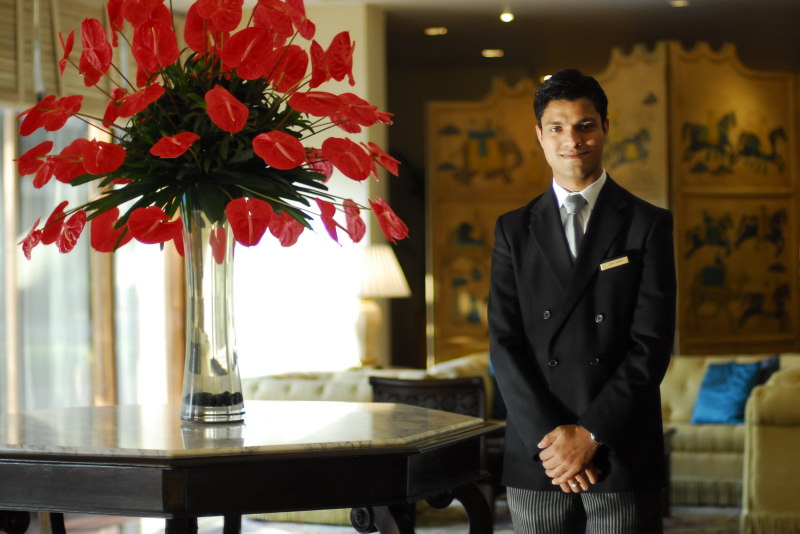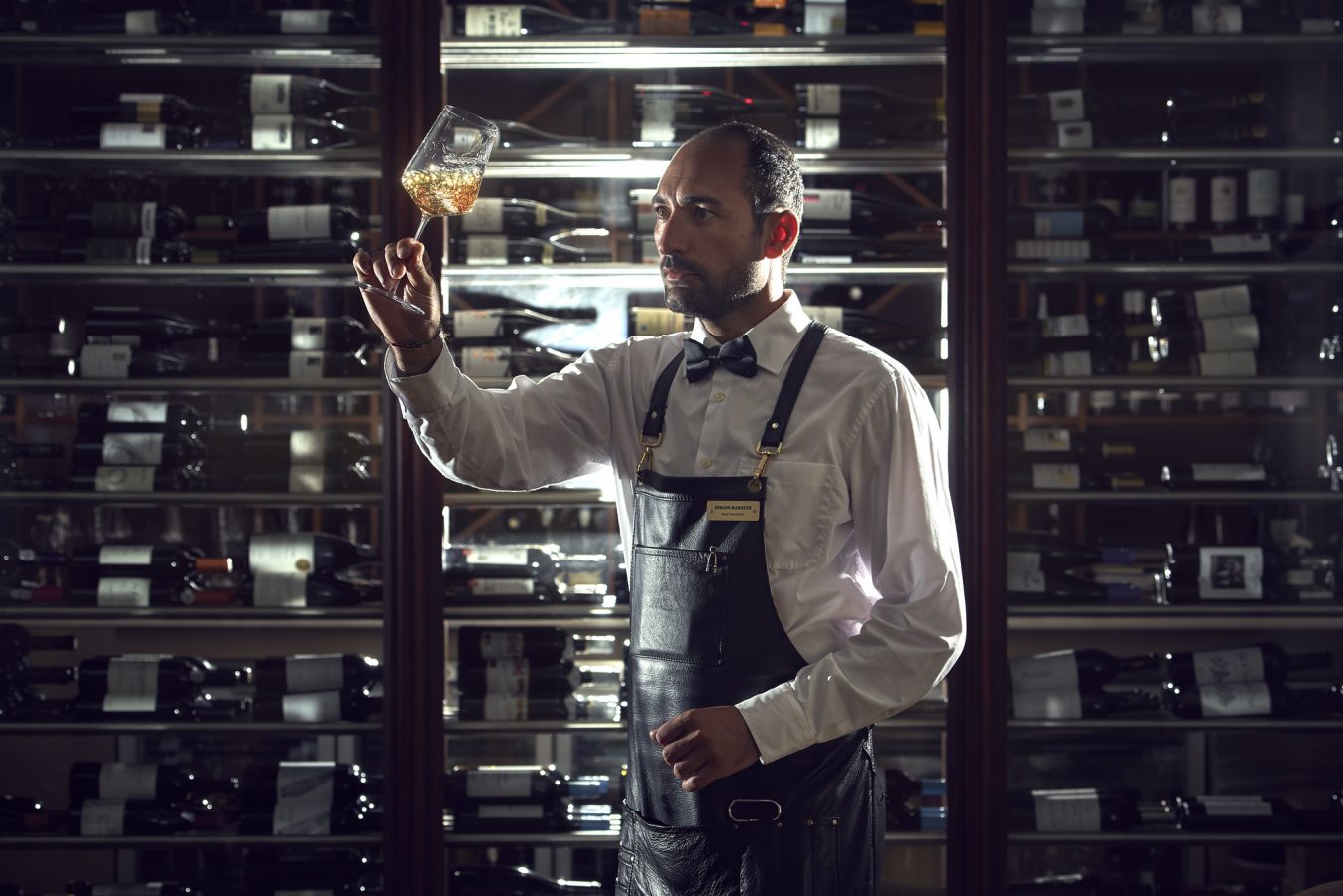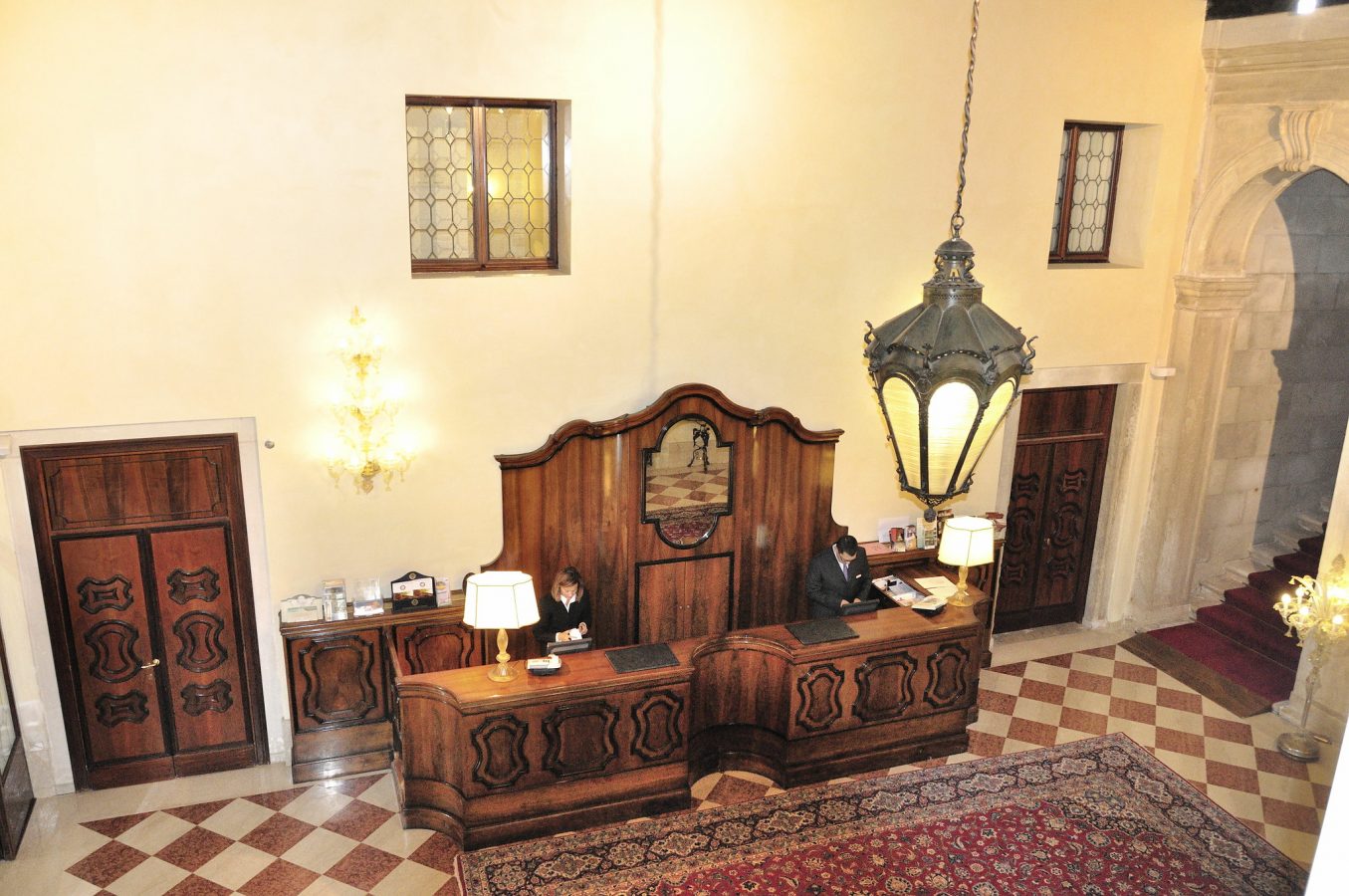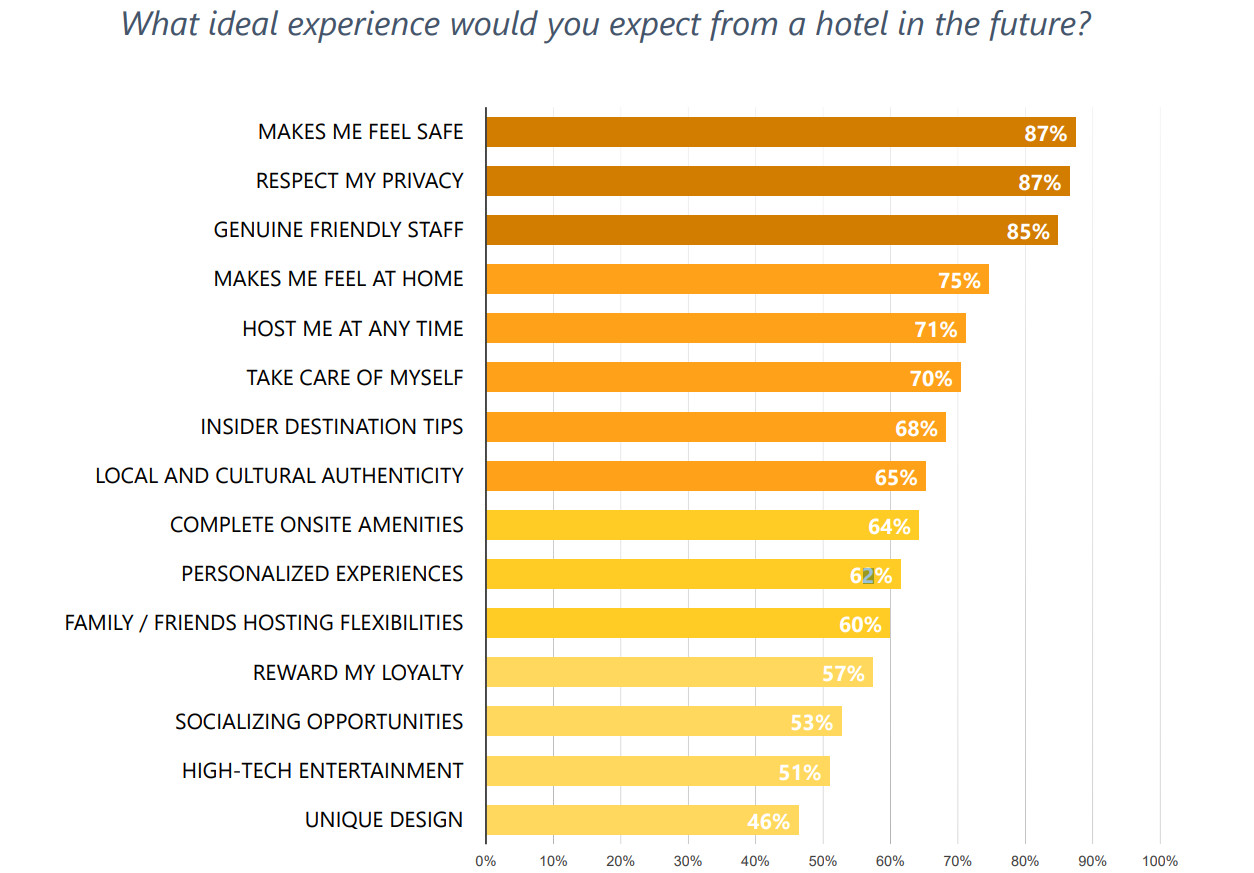Everybody in hospitality is saying “COVID has changed everything.” Well, if this is true, how come almost all of those spouting off about the new dynamics act as if nothing changed? This makes me wonder if our philosophies and marketing are now aimed at careless information consumers? A HospitalityNet opinion piece I just read, made me want to laugh and cry simultaneously.
“Scrap the front desk – Can hotels operate without a physical front desk?” by IDS Next CEO Binu Mathews is typical of today’s marketing-led media pushes. The piece is about how social distancing, efficiency, and the “trend” are what matter for future hospitality planning, PR, and operations. The author asks us to dance a slow dance and then abruptly breaks out into an exhibition of robot-styled salesmanship aimed at tech replacing humans. Amazon and the airlines scrapping humans is the lead, and Mathews’ company IDS Next is inserted into the void. His profile on HN is more transparent than the opinion piece:
“As the CEO, Binu aims to drive IDS Next towards achieving the ultimate goal – to become the global leader and most preferred hospitality technology vendor globally.”
The headings read “Smarter, safer, and choice,” but the reality is forcing an offer on consumers who had much rather believe human beings are part of their travel and hospitality experience. Anyone who cannot see the bean counters behind the hotel tech movement is either blind or just plain stupid in my opinion. And believe me, the IDS Next bossman is nowhere near alone in his shameless promotion of machines over front desk humans. His pimping of FX GeM, FX Mobile Check-In, and FX Roomate is not the worst thing here. The idea that hotels need to be transformed into factories to eat, sleep, poop, and shower in is. But this ideology is not Mathews’ fault. A void was created years ago by the tech industry, and now hoteliers are itching to fill it for the sake of cost-cutting.

Look, Chip Rogers, the head of the American Hotel & Lodging Association is preaching the technological sermon as well. If you read the story via VOX, which by the way is a tech-oriented outlet, you can find between the lines the coming “hospital/factory” experience these bean counters have in store for you. Let me quote so you will save time and be more efficient here at Argo:
“Upstairs, post-pandemic hotel rooms will have less bling and fanfare, opting for a more minimal and sanitary experience. For some hotels, expect that to be reflected in room design, including antimicrobial surfaces, even special resins used on the floors and walls (which prevent viruses from sticking), as well as auto-cleaning metals in bathrooms, according to hotel designer Jean-Michel Gathy.”
I am not sure if VOX writer Nadja Sayej needed to insert those links for somebody’s SEO ranking, to plug a company, or because hotel tech experts are so rare Jean-Michel is the only one VOX could reach for comment. (Hate me, I don’t care) It’s as if media and industry have caught some kind of technology or bust virus or something. The point is, contactless check-in, room service robots, and other technological additives are not filling some organic service void, they are being forced on the guest even before the ideal of travel has entered their minds. Every report I read comes from a source aligned with digital technology in one way or another. Contrary to what they are preaching, I believe what travelers covet the most right behind safety, is the very human interaction these technology advocates say should be avoided.

PortoBay Hotels & Resorts
Take this OpenKey article, the authors pretend to answer the question of whether or not the front desk is needed at all. Another quote will show where the real point of pain emanates from:
“A quick internet search of “Terrible hotel front desk staff” delivers over 250,000,000 responses with most being TripAdvisor reviews using those exact words. As a hotel owner or operator, one of the biggest pain points (and operating expenses) is the hotel front desk.”
It might interest my readers to know that a quick internet search for “Great hotel front desk staff” generates 376,000,000 results. The fact that OpenKey sources Hotel-Online and a press release about guest satisfaction by Magnani Caruso Dutton (MCD) is a digital customer experience agency might influence their opinions about guest preferences too. Or, do 73% of guests would REALLY prefer to skip the front desk entirely, as the hospitality industry media channels are suggesting?
Is the tail wagging the dog? As an insider, my assertion here is, absolutely. But wait! How could this happen? Is tech really being shoved down our throats? Well, OpenKey says they are “reinventing the hospitality experience through its mobile access solution.” Now let’s take a look at some “real” research on the subject of what guests need and want. A good place to start is with this Deloitte report, which opens like this:
“Hospitality will always be centered around customer experiences and connecting with people. Even as new technology, evolving customer preferences, and new competitive threats change the hotel experience, outstanding hospitality will still require a thoughtful human touch.”

This stunningly simple and elegant report talks about reimagining the hospitality space totally. Within this new-age imaginative approach, a hotel front desk is not done away with, but it’s evolved into a highly appealing and useful experience for guests. Deloitte’s surveys suggest the post-COVID guest is looking for the “individual experience” tailored for their special expectations. I am not exactly sure how our technology salesmen intend to satisfy the 27% of guests who feel they must have the iconic lobby fixture, but I am sure somebody in Silicon Valley can make a hologram front desk with a movie star clerk. Or, if I am blunt, how the hell are hoteliers going to create a personalized experience in a hotel assembly line atmosphere?
Let me cut to the chase here. Hospitality is an industry, but it’s also a noun that means “the friendly and generous reception and entertainment of guests, visitors, or strangers.” Now I know a hotel providing laptops and air conditioning controls is a nicety, but most people have an intimate relationship already, with their own smart stuff. To hammer my point here home, something Vikram Oberoi, the CEO of one of the world’s most distinctive hospitality brands said recently:
“Experiences are designed so that our guests develop an everlasting bond with our brand. Listening actively to our guests allows us to refresh and update our hotels and service—ensuring that we go above and beyond their expectations.”
Oberoi went on to explain that the differentiation point for delivering superb experiences and memories starts with people and ends with “exceptional people, who create memories for our guests through their warm, genuine, and intuitive service.” The hotelier was not talking about intuitive smart devices, my friends. Technology is the new air conditioning, TV remote, or room phone, to extend its importance much further will be to dehumanize the most human of expressions – caring and contact. The bottom line is, these technology creators want money, these media outlets pass sales info for news or data, and marketing has muddied the waters of consumer advocacy. The question at the end of the day is, “What is it the guest really wants?”
Finally, I mentioned real data to express current and future guest expectations. Somehow, the most recent Hotrec data (PDF) does not suggest ripping out hotel front desks and replacing people with machines. Interestingly, the one area where European hotels seem to excel is in person-to-person relations. And this occurs across the spectrum from budget hotels, to midrange, and on to luxury hotel experiences. As for predicting what guests want in the future, the Hotrec data makes my point well. Before I disclose, think of what a hotel front desk is first and foremost.

and Restaurant experience report
The Hotrec analysis comes from tens of thousands of people, thousands of individual interviews, and consolidated data from 100+ destinations and 40+ outbound markets worldwide, and not 1,000 tech company clients. I hope this settles the argument for hoteliers considering making their lobbies into retail stores. I don’t see an android concierge in the lineup there. And as for those of you pandering tech over everything? Well, go back to making quality and stop trying to grow by cannibalizing everything around you.
[…] Read full Story ➤ […]